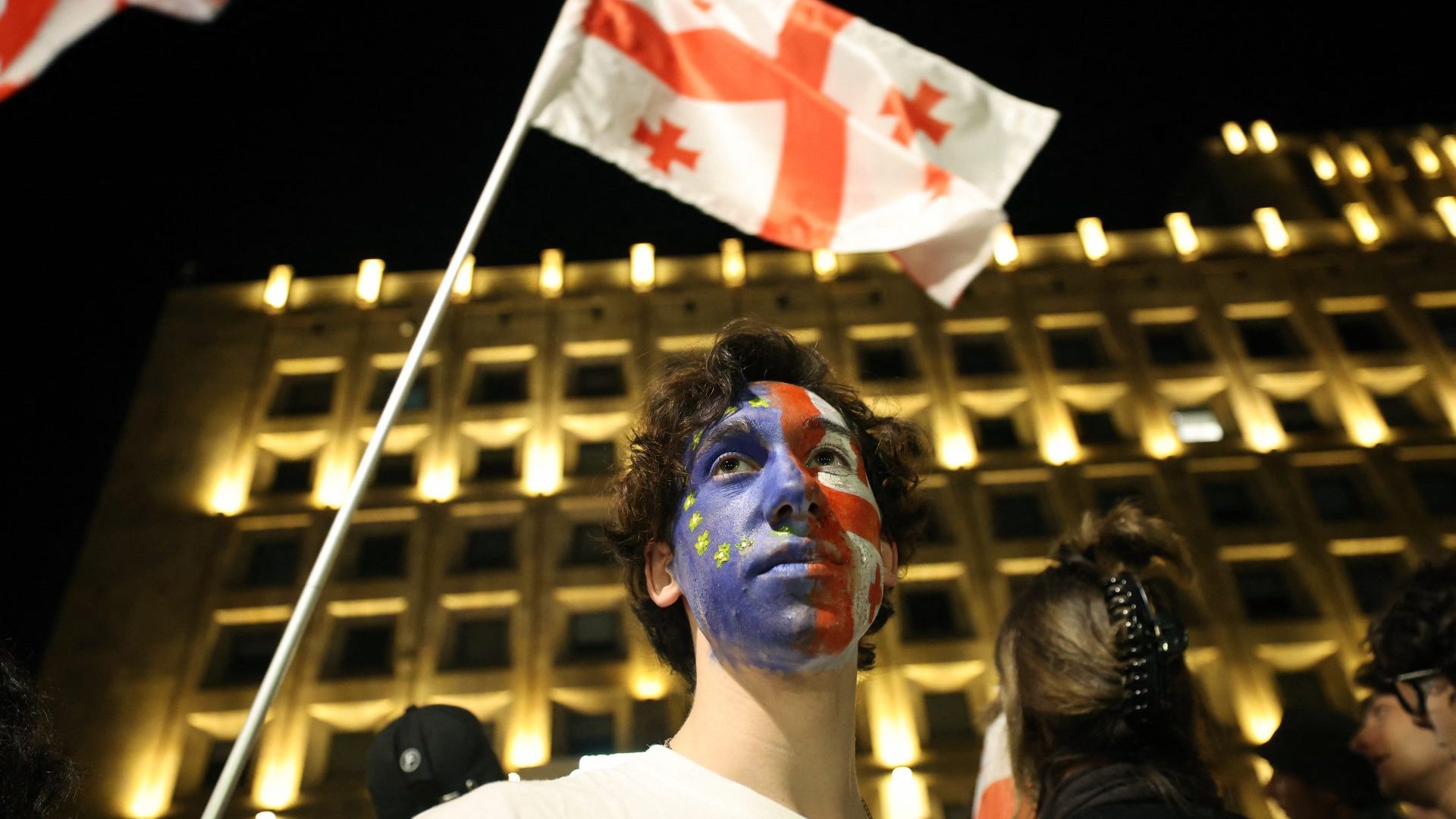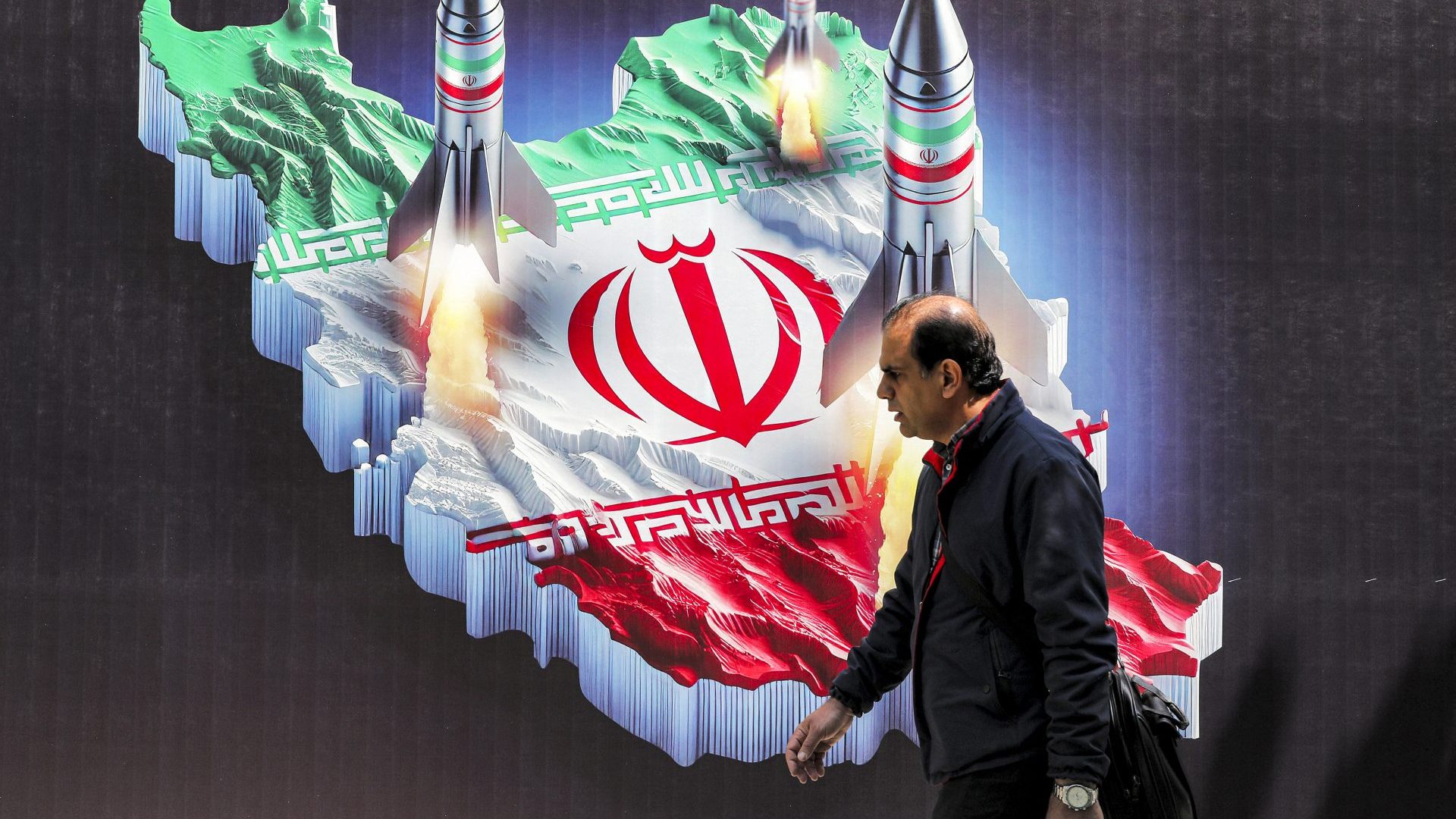Despite the pleasant spring weather, the political temperature in Georgia is at a dangerous high. People are protesting against the introduction of so-called “Russian law” here, legislation very similar to that introduced in Russia back in 2012. The aim is to crush civil society.
The protests in Georgia began a year ago over proposed draft law – and now the same bill is back. It looks like a psychological experiment to see how much we can stand, and how long people will protest. Georgia also has parliamentary elections this autumn.
The message of protesters is clear: Georgian people reject Russification. “No to Russian Law” is the slogan.
The draft law proposes a registry for Civil Society Organisations, such as think tanks, campaign groups and policy bodies. Under the new rules, they face the threat of being classified as agents of foreign influence, with the threat of punishment.
The ruling party, Georgian Dream, is also pushing very Russian-seeming “anti-LGBT” laws. In November last year, Georgia was granted EU candidacy status. These two pieces of legislation move the country further away from membership.
The draft of the so-called anti-LGBT propaganda law is a constitutional amendment. If passed, it will modify Article 30 of the constitution, leading to the adoption of a new constitutional law covering “Family Values and Minor Protection”.
Tea Rusadze, a public law expert, highlights the legal flaws in the draft bill: the ambiguity of its scope, the implications for organisations that are targeted, and inadequate safeguards for data protection. Despite the removal of the term “agent” in the revised version, the legislation is deeply flawed.
Khatia Ghoghoberidze, editor-in-chief of Media April, worries that her organisation will be labelled a “foreign agent”, which can lead to restrictions and fines. “We cannot pay and none of the media outlets can afford the fines, which means that it will initially be forced to close,” she says.
“I don’t pursue any influence,” says Ghoghoberidze. “I’m serving the Georgian public.”
Media April focuses on advocating for LGBT and women’s rights, making it a prime target of the new “Russian Law”.
One of the provisions in the anti-LGBT draft law puts restrictions on any medical intervention related to “the change of the biological sex”.
“This is an open attack on the queer community,” says Ghoghoberidze. “The authorities encourage homophobia. Instead of speaking on the real issues the country is facing such as poverty, children’s rights, paedophilia, violence against women and others, authorities decided to [attack] the queer community,” she says.
People living in the countries of the former Soviet Union know what life under censorship feels like: it affects every part of public life, and this new Georgian legislation would give the authorities the ability to censor a huge part of our national conversation. Ghoghoberidze also points out that this law also covers movies, literature, publishing houses, and many other domains, including the arts. This is clear censorship.
As Rusadze points out, both of these draft laws are completely against the so-called nine steps of the European Commission, which are essential for launching the process of Georgia’s full integration into the EU.
A large section of Georgians don’t want this legislation. The protests are continuing on Rustaveli Avenue, the place where Georgian people and civil society express themselves. They want to be part of the EU.



